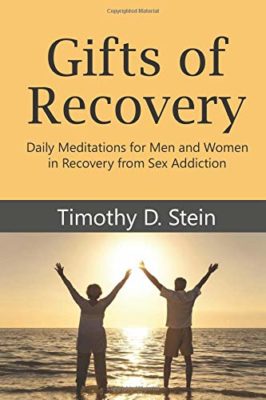 By Tim Stein
By Tim Stein
Meditation from Gifts of Recovery.
I have learned that people will forget what you said, people will forget what you did, but people will never forget how you made them feel.
–Maya Angelou
In recovery, changing our words and actions is important. However, changing how we relate to others is vital. If we change our words and actions yet others still feel used, manipulated, disregarded, or degraded by us, then we are not really walking a path of recovery. While we cannot control another person’s feelings, we can be open to their experiences and hold ourselves accountable for how we have intentionally or unintentionally impacted them. Sobriety asks us to create behavioral change. Recovery asks us to create relational change.
What changes have I made to my words and actions? Have I also created change in how I relate to others? What gifts await me as I create relational change?
What do I make others feel? That is an important and sometimes confounding question. As a wounded healer, I have three responses. My therapist brain says, “I can’t make anyone feel anything. Their feeling is a reaction to my behavior combined with their own past experiences and their current beliefs. Another person may feel something completely different from the same interaction.” My addict brain says, “Are you kidding me? Either grow up and deal with your emotions or let me fix it so you are happy again.” My recovery brain says, “While I cannot control what other people feel, I am responsible for the impact my actions have on them even when those impacts are unintentional. Time to embrace Step 10.” (As a reminder, Step 10 is “Continued to take personal inventory and when we were wrong promptly admitted it.”) If it is not already obvious, I recommend following your recovery brain.
It is important to do this Step 10 work when others let us know we have hurt them emotionally. It is even more helpful for us to develop our “emotional impact radar” so we can identify and address these situations before they are brought to our attention. Better yet, as our personal inventories help us identify our continued character defects, we can work to change our actions before they negatively impact others. Two ways we can do this are exploring our own addict tendencies and actively working to understand others’ experiences.
There are many ways we can explore our own addict tendencies. We can use stream-of-consciousness journaling to allow our shadow side to show itself. We can willingly talk about “the things we don’t want to talk about” with our sponsor or recovery support people. We can actively listen to old-timers and newcomers in meetings as they share their past and current struggles and realizations. We can seek out resources that illuminate addict thoughts and actions so we can better identify our areas of growth and continued challenges. These resources may be stories included in various programs’ big books, books such as Letters from a Sex Addict by Dan Drake and Wendy Conquest, or addicts sharing their experiences through stories, poems, or songs.
There are many ways we can work to understand others’ experiences. We can mentally “walk in their shoes” for a bit. We can argue their perspective or side of a conflict as an intellectual exercise. We can seek out resources that illuminate how others experience addicts’ character defects so we can better identify ways in which we might negatively impact others. These resources may be stories published by partner-oriented or Al-Anon type programs, books such as Letters to a Sex Addict by Wendy Conquest, or other people (typically partners) sharing their experiences through stories, poems, or songs. Best of all, we can simply ask our partners or trusted friends, “What character defects of mine still show up and impact you?”
While we cannot control another person’s feelings, but we can certainly put thoughtful effort into becoming aware of the potential impact we may have on others. This work not only benefits us and those around us; it allows us to bring new insights, understandings, and experiences to our clients.

